Local Resilience: Transition Town Totnes - the model for local sustainability
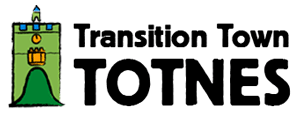
Here is some information on the original Transition Town, Totnes in England, taken from their website
http://www.transitiontowntotnes.org/
Thanks to gulfgal for the transition town topic on this week's Wednesday OT.
I made four topic extracts:
1. Local Currency
2. Local Skills
3. Local Economy
4. Local Food
Please see more below.
Might as well listen to Mark Knopfler
Capitalists bribed local governments to accept their franchises (box and retail stores), which promptly destroyed the local economies by ruining family businesses and hoovering up local money and vacuuming it to financial centers. Here's the solution: Local Money.
The Totnes Pound was launched as an initiative of the Transition Town Totnes Economics and Livelihoods group in March 2007. By now it has gone electronic and even has it's own website:
http://www.totnespound.org/
The purpose of the local currency is:
Economic localization is considered to be a key aspect of the transition process, and local currency systems provide the opportunity to strengthen the local economy whilst preventing money from leaking out.
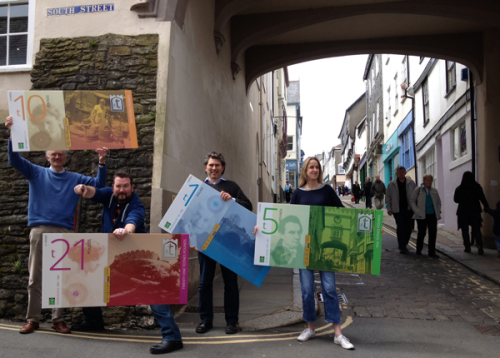
The latest issue of Totnes Pounds has local heroes on the various denominations. Cool, that.
The Totnes Pound's goals are:
* To build resilience in the local economy by keeping money circulating in the community and building new relationships
* To get people thinking and talking about how they spend their money
* To encourage more local trade and thus reduce food and trade miles
* To encourage tourists to use local businesses
Here's how the Totnes Transition site explains it:
Totnes Pounds enter circulation when people choose to exchange their sterling currency into Totnes pounds at one of four places around Totnes. At present the exchange rate is 1TP for £1. Totnes Pounds can then be spent at participating businesses, of which there are currently around 70. Some of these are now offering discounts for certain purchases that are made in Totnes Pound to encourage usage. People can exchange their Sterling into Totnes Pounds at a number of issuing points around Totnes. People can also accept Totnes Pounds in change from participating shops. This does not create new pounds, but does help them to circulate and enables shoppers to show their loyalty to the local economy.
Every Totnes Pound in circulation is therefore 'backed' by one pound of Sterling. This money is put into a bank account. Totnes Pounds then circulate between consumers and businesses. Some businesses spend the Totnes Pounds that they receive with other local businesses. This strengthens the local economic multiplier, which means basically that money stays within the community rather than leaking out. If a business has a excess of Totnes Pounds they are able to exchange the surplus back for Sterling.
The Totnes Pound project team has been working with Co-ops UK to set up an Industrial and Provident society which will be the long term vehicle for managing the currency. Here's the real key to future sustainability. They plan to diversify the asset which backs the currency:
In future it might be possible to back it with land, energy or labour. At this point the currency will be able to play an even more significant role in building economic resilience.
That's the ticket. When they're able to back the currency with something else than just the pound sterling, they'll be able to increase it's use and influence in the community. And Totnes will have one more instrument for the future when everything truly becomes local. What do you think?
The Totnes Pound experience was described in a valauble resource, a book called Local Money by Peter North for the Transition Network's publishing arm. It is a valuable resource for saving your local community form disaster capitalism and climate change
(Please don't buy it new and don't use gargle to search for it :=)
Here is its table of contents:
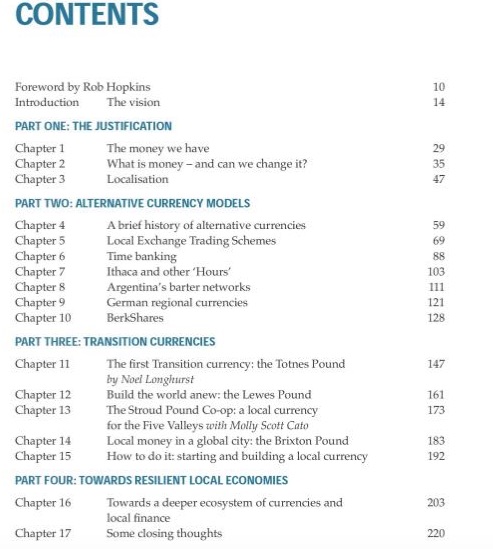
Here is Rob Hopkins' review from 2010:
“I’ve really enjoyed the last three books to come out of the Transition Books stable, so I was pleased to see the latest instalment was out: Local Money – how to make it happen in your community. It’s another big square book, following Local Food, and it’s got the same practical, inspiring, can-do approach. This time, it’s all about creating local money networks.
The Transition Towns movement is all about resilience – preparing towns for the challenges of climate change and peak oil. What’s money got to do with it, you may well ask, but money is a valuable tool in relocalisation. Our current money system doesn’t serve us very well. It is beyond our control, in the hands of bankers and politicians and people we might hesitate to trust. It flows in vast quantities to people who don’t seem to do very much to earn it, while others work hard for very little. It is endlessly available for some tasks, and in short supply for other very necessary things. Most of all, it has an unpleasant habit of vanishing out of the places where we live and ending up in London and New York. Local money is a way of re-imagining money as the tool it should be, rather than the master it often becomes.
Since money is just an agreed mechanism of exchange, there are many different kinds of money, and endless possibilities for re-creating it. Local Money begins with an introduction to money and a history of alternative currencies, and then dedicates a chapter each one to a series of experiments with money. Time banking is one, a currency based on hours of work, and a great way to value all labour equally. Local Exchange Trading Schemes are an less formal way for people to trade skills that were successful in the past. North then explains the four Transition currencies so far, and ends with some tantalizing glimpses of the future of money, including feed-in tariff based bonds, mobile phone money, and tradeable energy quotas.
Among the more interesting systems that the book explores are Germany’s regional currencies, which operate alongside the Euro. Reading at a time when the Euro is in considerable danger, I bet Germany is glad it put the regional alternatives in place. “Monoculture of money,” says Peter North, “just like a monoculture of crops, is not resilient.” I’m not sure why I hadn’t heard about it before, but Germany has “a rich ecosystem of currencies”, as North puts it. Each one serves a different purpose, and this is perhaps the closest to the healthy and resilient model that the Transition Towns are after.
Totnes, Lewes, Stroud and Brixton are the three Transition currencies. They each have a slightly different philosophy, Stroud being the most radical – it is democratic money, owned by a co-op. The main aim of these currencies is to build the local economy and encourage more local supply chains. It’s a little early to tell whether it’s working or not, and North hints that they are “perhaps mere glimpses of what could be” in future. This is the really practical bit if you’re ready to have a go at creating your own money – lots of advice about getting buy-in from businesses, how much to print, why you should think long and hard about the name of your currency, tax implications, and so on.
There are some real strengths to Local Money. Peter North knows that everything in the book is an experiment, and that there’s no one formula. It’s an iterative process, and the book is great at breaking down historical examples to see what worked and what didn’t. It’s honest too, acknowledging the failures and limitations of what has been tried so far as well as the successes. If you’re ready to embark on the rather exciting journey of local money in your town, this is the most helpful book I’ve come across so far.
However, if you’re not that far along, the book is less useful. The previous Transition book, Local Food, had all kinds of different projects of varying levels of complexity. Whatever stage your town was at, there were inspiring ideas to get started. Local Money starts further along the road, with actual currency, when there are lots of smaller ways to build resilience in the local economy. I’d have loved to have read about local loyalty cards, such as the Wedge Card in London, or the 3/50 Project that invites people to pledge to spend money in three favourite local businesses. Both of these are a whole lot simpler, quicker, and less risky than launching a fully fledged alternative currency. But perhaps that’s for another book, a Local Economies title perhaps.
There’s also a lot more that could have been included. Local currencies aren’t the only way to generate local money, and it would have been great to hear more about zero interest banks (see Jak), peer to peer lending, shared equity mortgages, local banking and credit unions, local bonds, microfinance, or the ‘moneyless’ credit clearance schemes that Thomas Greco champions. Some of these get a passing mention, but they could all be considered valid options for making local economies more resilient and deserve more attention.
In other words, Local Money is great on currencies, but could have been much broader in scope. The Transition currencies are wonderful experiments and this book will get you well on your way to launching your own, but there is so much more to try.

The skillshare workshops is how Totnes builds resiliency skills with local residents:
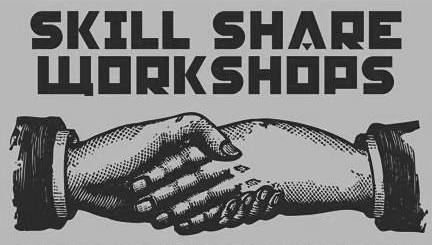
http://www.transitiontowntotnes.org/groups/skillshares/
What is the Skillshare Project?
The Skillshare Project was inspired by Rob Hopkins “Great Reskilling” idea and is listed as Number 8 in the “12 Steps to Transition”. The goals of the project (as from The Transition Handbook) are:
To bring people together, relaxing and learning new skills
To build networks and move our community towards self-reliance and resilience
To create a fundamental sense of ‘can do’ and feelings of positivity, creativity and empowerment
To establish and nurture links between old and young as skills are passed on
To organise practical and useful events
To work with existing groups in order to share and draw on local skills.The Project encourages anyone of us to offer guidance on a topic likely to help increase our community's resilience, as a one-off gift (or more!). Contributions of all kinds are welcome! We can pass on valuable skills as well as experiment, stretch ourselves, practice generosity, form connections, inspire each other and have fun!
Check this out:
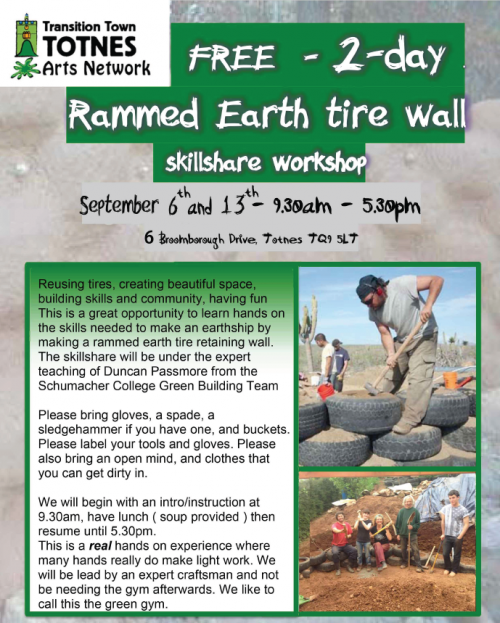

The residents of Transition Town Totnes work real hard at reorganizing their local economic framework away from how the capitalists organized the economy to make towns dependent, helpless, and feeders of local money to the financial centers. (You don't happen to think that your town got so fucked at random, do you?)
Totnes pushes for the town to become economically self-sufficient in the following two crucial areas: relocalization and resilience.
Here's how Rob Hoskins explains it.
Relocalisation - actively promotes the idea of going beyond the concept of ‘localism’. That is the devolving of political power to the local level; for example, as expressed in the coalition government’s ‘Big Society’ agenda. We work towards 'localization’; seeing the meeting of our core needs locally (food, building materials, energy...) as offering huge potential to our local economies, while also reducing oil vulnerability and carbon emissions.
Resilience - in Transition terms goes beyond the accepted idea of resilience as being about ability to adapt to shocks, instead seeing it is a desired state; the rebuilding of which could be hugely economically advantageous to our local communities.
In practice, Transition works by inviting people to take ownership of the process; by not claiming to have all the answers but encouraging creativity, and by building networks with other organisations. It is based on the model of ‘project support’, that is that the role of Transition is to catalyse and support, rather than to hold and manage a wide range of projects. An essential part of the Transition method is visioning. We believe in a positive vision of the future and work to make it real.
Totnes calls this work "REconomy." Very cool, that. One of the key planks in Reconomizing their local economy is their Local Economic Blueprint.
http://reconomycentre.org/home/economic-blueprint/
As an essential part of evidence gathering for this REconomy work, we have been working for some time on the Local Economic Blueprint project for Totnes and District.
Based on public data, we have estimated the potential value of four key sectors of our localised economy, and built a coalition of partners to turn these opportunities into reality. Together we agreed a vision for what our local economy should be and have identified some activities and projects that will take this work forward.
Here are a few findings, profiling the potential of the four key sectors we have worked on so far – food, retrofit, renewable energy and care and health.
Here are the slide show images that summarizes the four key sectors of the Totnes local economy.
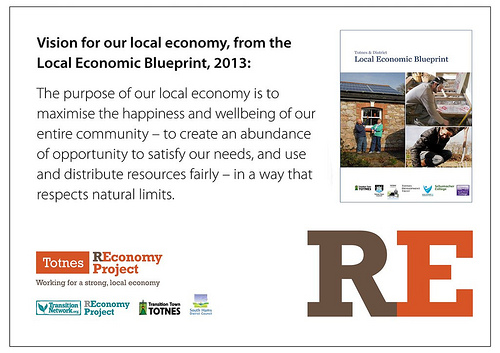
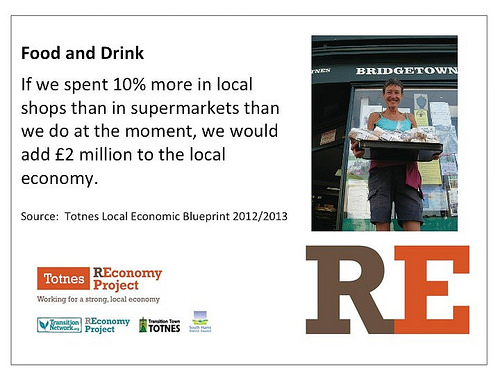
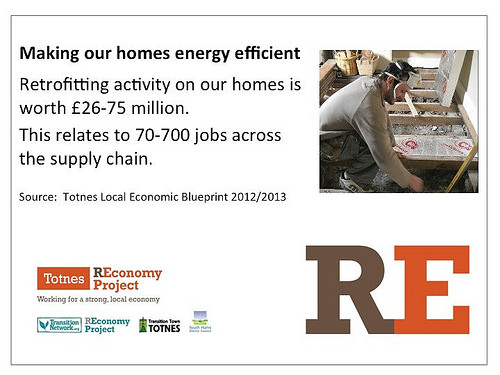
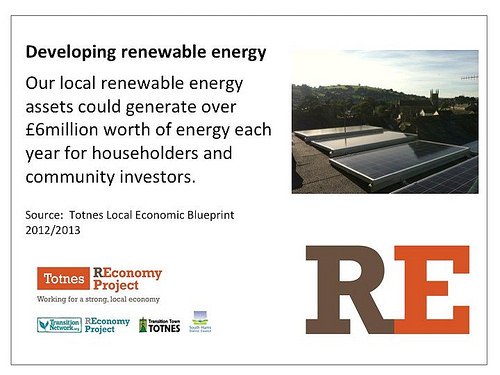
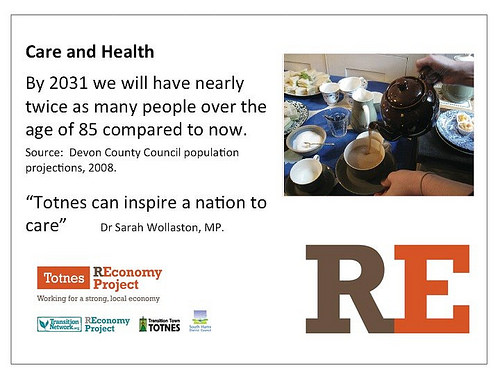

4.
I'd like to show you the Totnes Food-Link Programme. It keeps money local and grows the local economy through creating links between town residents and the food producers in a 30 km radius. They way things used to be before the capitalists destroyed local economies.
But before that, here is a screenshot of the Totnes Food Group. The Food-link programme is only ONE of the Food Group's projects!
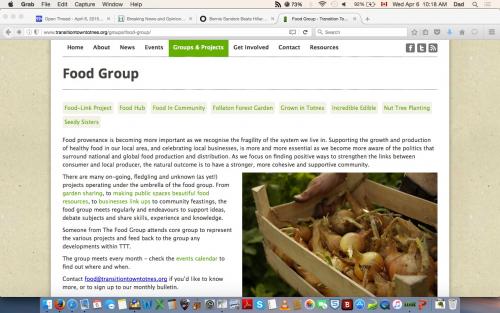
w00t!
OK, the Food-Link Project
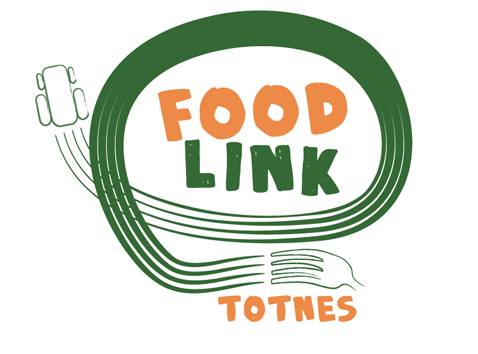
http://www.transitiontowntotnes.org/groups/food-group/food-link-project/
The Totnes Ffood linkood-Link project seeks to strengthen the links between local producers (within a 30 mile radius of the town), and retailers and restaurants within the town, building confidence and loyalty between both parties. We are always looking for new volunteers to get involved with all areas of the project.
The project was previously coordinated by Holly Tiffen, who has now moved on to manage Grown In Totnes. Food-Link is now being managed by Myrtle Cooper who will build on the strong networks developed over the past few years, to bring together local farmers, food processors and retailers to strengthen local food business connections, creating a stronger enabling environment for local food to be traded in our community.
£30 million is spent annually on food and drink, of which just one third is spent in the 60+ vibrant independent food shops in and around Totnes. By encouraging people to shift juts 10% of their weekly food spent to independent food shops we could bring £2 million to boost our local economy.
So moving forwards the Food-Link will be running a campaign in partnership with Grown in Totnes to encourage people in and around Totnes to shift a small proportion of their weekly food spend to local independent food shops and product. We'll be running a creative, visual and engaging series of events and activities locally.
Food businesses in and around Totnes have also told us they want to see a distinctive brand to increase the visibility of local food products so we’ll be developing one in 2016.
Whaddayathink? :=)
Peace be with us, if we learn from transition towns and strengthen our local communities,
gerrit


Comments
This is really cool
and more power to Totnes for being so open to this.
Sort of related - Totnes is the birthplace of one of the guys that did this
and made this music
[Video:https://www.youtube.com/watch?v=frIUgilfsWA]
“To learn who rules over you, simply find out who you are not allowed to criticize.” -Voltaire
TY steve. Woah - KLF is cool! Yes, the Totnes site is a treasure
trove of information on local resilience. And they started very small, like everything does, and kept on building on small successes. It is very encouraging. Enjoy your day mate,
Resilience: practical action to improve things we can control.
3D+: developing language for postmodern spirituality.
Must admit
that I didn't know about the KLF Totnes connection prior to reading your post
Have a good one
“To learn who rules over you, simply find out who you are not allowed to criticize.” -Voltaire
Wow...you're on a roll my friend!
Thanks for all of this good info... I will be referring this to some people at my church...
RE: the Food Links....
Ontario is well known for it's fruit and vegetable growers. And yet, when I was in the hospital last year the fruit cups that came on my dinner trays were imported from CHINA....and it was NASTY. No one was eating them so they were trashed and wasted. The energy and inputs used to grow, harvest, package, and transport was all wasted too.
A small example to be sure, but we MUST do better than this.
Please help the Resilience Resource Library grow by adding your links.
First Nations News
Ty and I'm so agreed, Martha. Local food, food preservation,
and eating seasonally is the way to resilience. TY eh :=)
Resilience: practical action to improve things we can control.
3D+: developing language for postmodern spirituality.
I live in a smallish town.........
my son owns a local retail store. I have x amount of money to spend. I try every day to think through what I am going to purchase. Is it available from a local store or do I have to go to Wal-Mart, Home Depot, Lowe's, Office Depot, etc? The second question is how bad do I need it?
My son, as an example, sells locally for the most part, the money he pays employees something more than minimum wage, he hires local people for repairs, advertises locally, etc. You get the picture. What he has left(if anything) is spent locally.
We all make decisions everyday about how we spend. Those decisions can make or break our local economies - and have. Every dollar spent at Wal-mart is a stake in the heart of local merchants, as stated, all the money spent in big box stores leaves the city every night headed for some corporate office. You don't have to drive yourself crazy, just take a second to think through where you spend. Wal-mart isn't supporting any local little league team, they aren't advertising in the local paper - see who is and support them when ever you can.
If we all do that, life will change as we know it - for the better. By the way, Wal-mart is aghast that sales are expected to be flat for the first quarter of 2016. Part of this is due to on-line sales, which is another way dollars leave the local economy.
Big thank you for this, importer. You describe the franchise
trap so well based on your and your son's experiences. I want to write up something on buying locally and how communities can support local businesses much better. Maybe something from the Institute for Local Self-Reliance https://ilsr.org/
Have a great day and please tell your son we wish him all the best in his business,
Resilience: practical action to improve things we can control.
3D+: developing language for postmodern spirituality.
I was intro'd to the Transition Town concept in VT
The loosely organized group that presented several Transition Town meetings open to all in our community focused its initial attention on local food and local energy. In that rural area, transportation was also important to and from the village center's shopping opportunities from outlying areas. Interesting to see how things have progressed in Totnes. A very useful topic--more so all the time.
"It is no measure of health to be well adjusted to a profoundly sick society." --Jiddu Krishnamurti
Morning, 2andfro! Thanks, and yes, transitioning to more
resilient and sustainable local communities becomes more urgent every day. Vermont sure produces lots of progress and progressives, eh :=) Have a great day,
Resilience: practical action to improve things we can control.
3D+: developing language for postmodern spirituality.